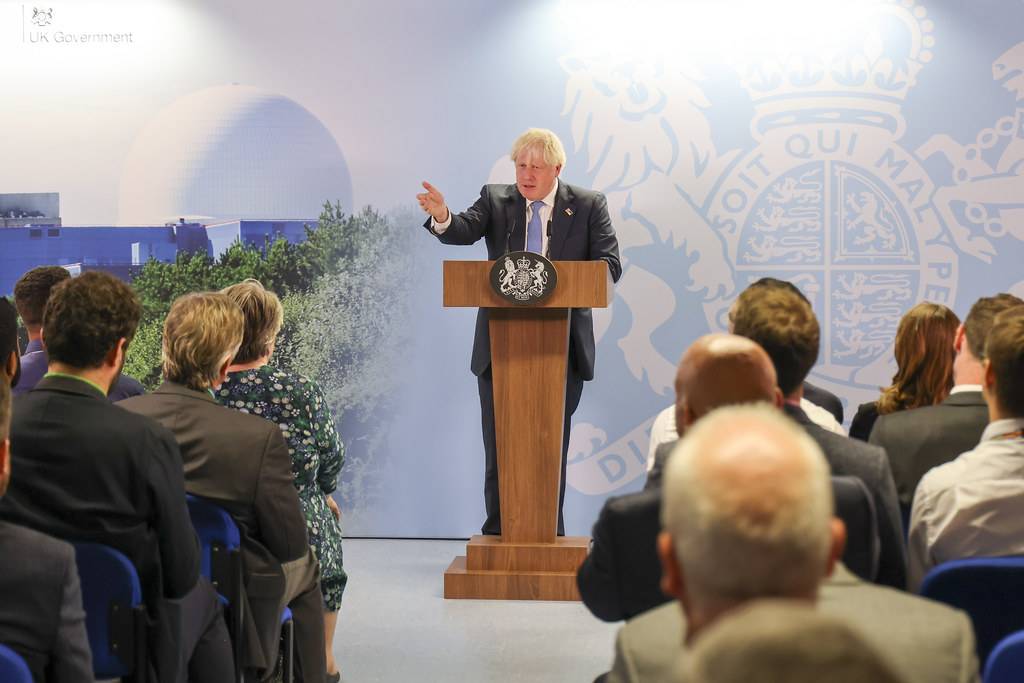Johnson will formally leave office on Tuesday, handing power to either Foreign Secretary Liz Truss or former Treasury chief Rishi Sunak, the two finalists in the Conservative Party’s leadership race…reports Asian Lite News
Outgoing Prime Minister Boris Johnson on Thursday pledged £700 million of government funding for a planned new nuclear power plant as part of a drive to improve the UK’s energy security.
Johnson said the spike in global gas prices driven by Russia’s invasion of Ukraine showed why more nuclear generation capacity was needed in the UK.
The plant, called Sizewell C, is located on eastern England’s Suffolk coast. French energy company EDF, which will partly fund the project, has said it can generate low-carbon electricity for at least 60 years when the project is complete.
The plant will reportedly cost about 20 billion pounds. Britain’s government gave the greenlight for the plant in July, and talks about how to fund it are ongoing.
“Yes, nuclear always looks relatively expensive to build and to run,” Johnson said in his final major policy speech as prime minister. “But look at what’s happening today, look at the results of Putin’s war. It is certainly cheap by comparison with hydrocarbons today.”
Johnson added, “I say to you, with the prophetic candour and clarity of one who is about to hand over the torch of office, I say go nuclear and go large and go with Sizewell C.”
Johnson will formally leave office on Tuesday, handing power to either Foreign Secretary Liz Truss or former Treasury chief Rishi Sunak, the two finalists in the Conservative Party’s leadership race.
Many in Britain are looking to Johnson’s successor to announce urgent measures to help ease the financial pain for millions of people who will struggle to heat their homes this winter as household energy prices go up by 80 per cent from October.
Britain wants to reduce its dependence on imported oil and gas and generate cheaper, cleaner power domestically. The government has said it wants 95 per cent of British electricity to come from low-carbon sources by 2030.
Earlier this year, the government tried to protect households against 90% of the expected increases in energy bills through tax cuts, energy bill rebates and direct payments. But natural gas and power prices have shot up since then, as have forecasts of future increases.
Researchers at the Institute for Government said Tuesday that the government would need to spend an extra £23 billion to protect households against about 90% of the expected rises in energy bills until April 2023. Offsetting the same proportion for the year to April 2024 would cost another £90 billion.
That forecast chimes with the cost of a proposal by Scottish Power, one of the UK’s biggest energy companies. It has called on the UK government to protect millions of households by freezing their bills for two years, according to report by the Financial Times.
The average annual bill currently stands at £1,971 ($2,318) — up 54% so far this year — but is forecast to shoot past £3,500 ($4,117) when the upper price limit is fixed Friday for the last three months of this year. Analysts at Auxilione, a research firm, say the average household could be paying as much as £6,433 ($7,579) a year for natural gas and electricity come next spring if the government doesn’t intervene.
ALSO READ-Truss rules out new taxes














